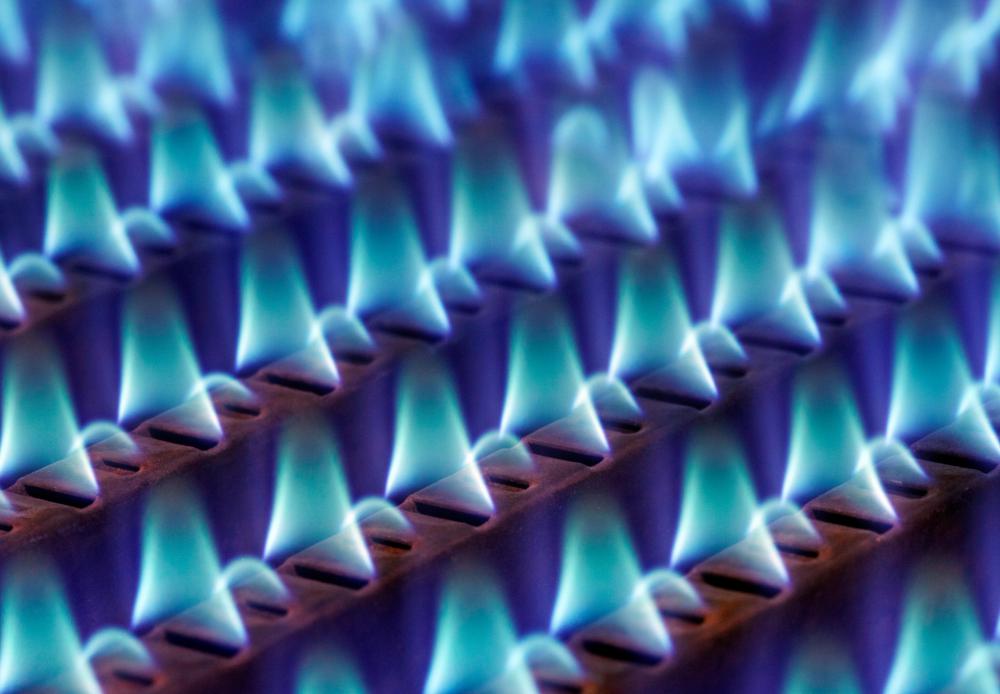At WiseGEEK, we're committed to delivering accurate, trustworthy information. Our expert-authored content is rigorously fact-checked and sourced from credible authorities. Discover how we uphold the highest standards in providing you with reliable knowledge.
What are Natural Gas Futures?
The fourth largest source of energy in the United States, and an abundant resource utilized throughout North America, natural gas plays an integral role in sustaining the power needs of both industry and domestic consumers. Natural gas futures contracts are traded on the New York Mercantile Exchange (NYMEX) providing consumers and energy producers alike with a financial vehicle to hedge their price risk in this volatile market. Likewise, these exchange traded contracts also serve as investment instruments for speculators who trade futures contracts in the hope of profiting off the price differentials that occur as the market rises and falls with shifts in supply and demand.
A fairly recent development, natural gas futures were first introduced by NYMEX in 1990. The impetus for the creation of this new market instrument was the U.S. Natural Gas Policy Act of 1978 which deregulated the natural gas industry and opened it up to free market competition. Since its introduction over a decade ago, natural gas futures have become the fastest growing type of futures contract by volume and open interest in the history of NYMEX.

Although other countries around the world incorporate natural gas in their energy schemes, natural gas futures have been slow to develop outside the U.S., primarily due to the highly regulated nature of the natural gas industry abroad. Russia, the other major producer of natural gas globally, tightly regulates their natural gas market, keeping prices artificially low for domestic consumption, and raising it higher for export. In highly regulated markets, futures are unnecessary since price volatility and risk are minimal.

A type of commodity contract, natural gas futures involve the purchase or sale of a standardized quantity of natural gas at a specific price for delivery at a set date in the future. The futures contract for natural gas trades in units of 10,000 million British Thermal Units (BTU). A BTU is the quantity of natural gas needed to heat one pound of water by one degree. There are approximately 1,027 BTUs in one cubic foot (.03 cubic meters) of natural gas. Contract prices for natural gas futures are based on the current delivery price at the Henry Hub in Erath, Louisiana.
A central processing point where 16 natural gas pipelines meet, drawing gas from a number of major natural gas producing regions, the Henry Hub pipeline system services Texas, the Gulf coast region, along with the Mid West and Canada. Due to the enormous volume of natural gas passing through this location, price set at the Henry Hub establishes the price for the whole North American gas market.
As one of the main sources of energy for heating homes and commercial structures, the demand for natural gas is seasonal, peaking during the winter, and declining during the summer months. Energy producers, utility companies, and investors, all assess their exposure in the natural gas market in relation to these seasonal trends in demand. Severe weather conditions such as hurricanes can also play havoc with natural gas prices, damaging processing facilities, and impacting the transport of fuel to the market.
Governmental energy policy influences the demand for this resource as well, with legislation promoting green energy sources likely to have a positive price effect on the market as natural gas is considered a clean type of fuel. The other major factor affecting the price of natural gas futures is oil. Since oil and natural gas compete with each other as energy sources, and are employed in very similar ways, fluctuations in oil commodity prices can exert price pressure on the natural gas market as well.
AS FEATURED ON:
AS FEATURED ON:












Discuss this Article
Post your comments